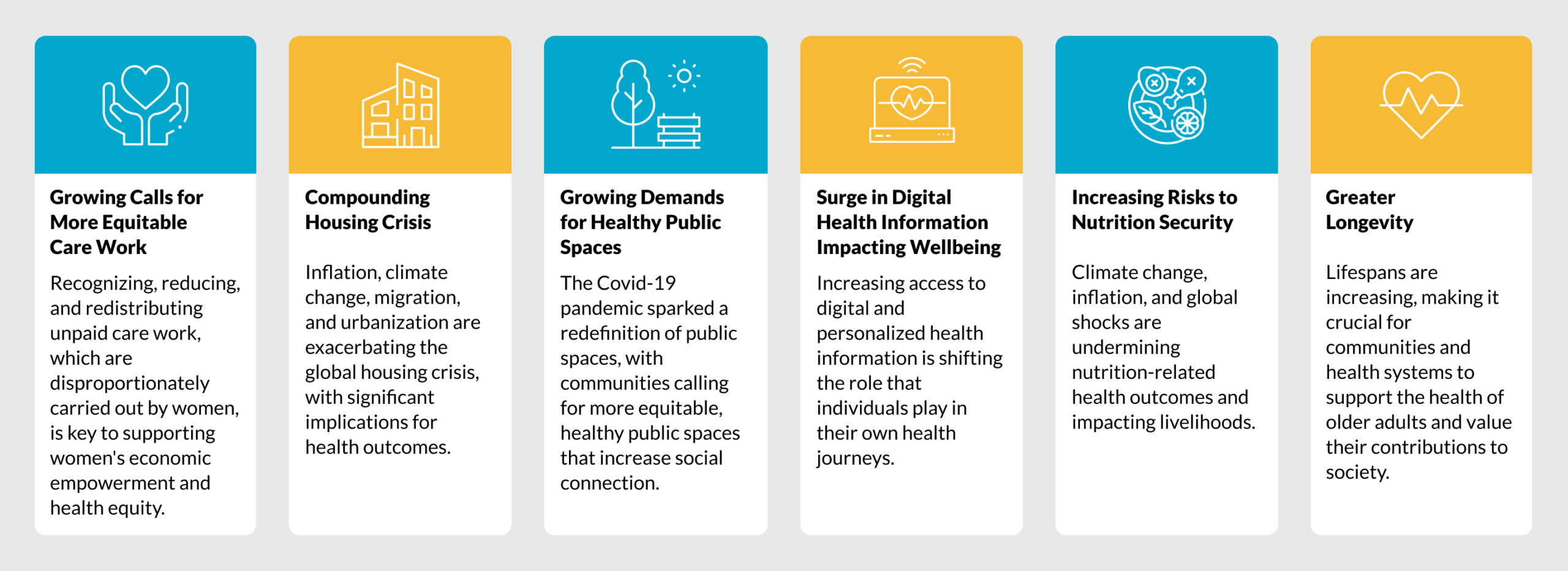Dalberg uses cookies and related technologies to improve the way the site functions. A cookie is a text file that is stored on your device. We use these text files for functionality such as to analyze our traffic or to personalize content. You can easily control how we use cookies on your device by adjusting the settings below, and you may also change those settings at any time by visiting our privacy policy page.
Across the United States, people separated by a short drive or a subway stop may have life expectancy gaps of up to 20 years. This is not inevitable; it is not the result of “poor decisions,” “bad genes,” or even poverty. This is the result of discrimination, racism, unfair laws, and policies that influence social determinants of health—access to jobs, education, lending, housing, and more. Recognizing the complex and multifaceted makeup of social determinants of health, Robert Wood Johnson Foundation’s Global Ideas for U.S. Solutions team and Dalberg paired up to explore what global trends are shaping the future of U.S. health equity and identify innovative solutions from around the world that can inform U.S. action. The report touches on many of the trends highlighted through Dalberg’s recent conversations on global health trends and covers several topics within the health ecosystem that Dalberg regularly tackles. Here are the six trends the report identifies:  1. Growing Calls for More Equitable Care Work
1. Growing Calls for More Equitable Care Work
2. Compounding Housing Crisis
3. Growing Demands for Healthy Public Spaces
4. Surge in Digital Health Information Impacting Wellbeing
5. Increasing Risks to Nutrition Technology
6. Greater Longevity
We look forward to hearing about how you are leveraging these trends to shape health equity in the U.S. and around the world. For comments or questions about the report, contact:


